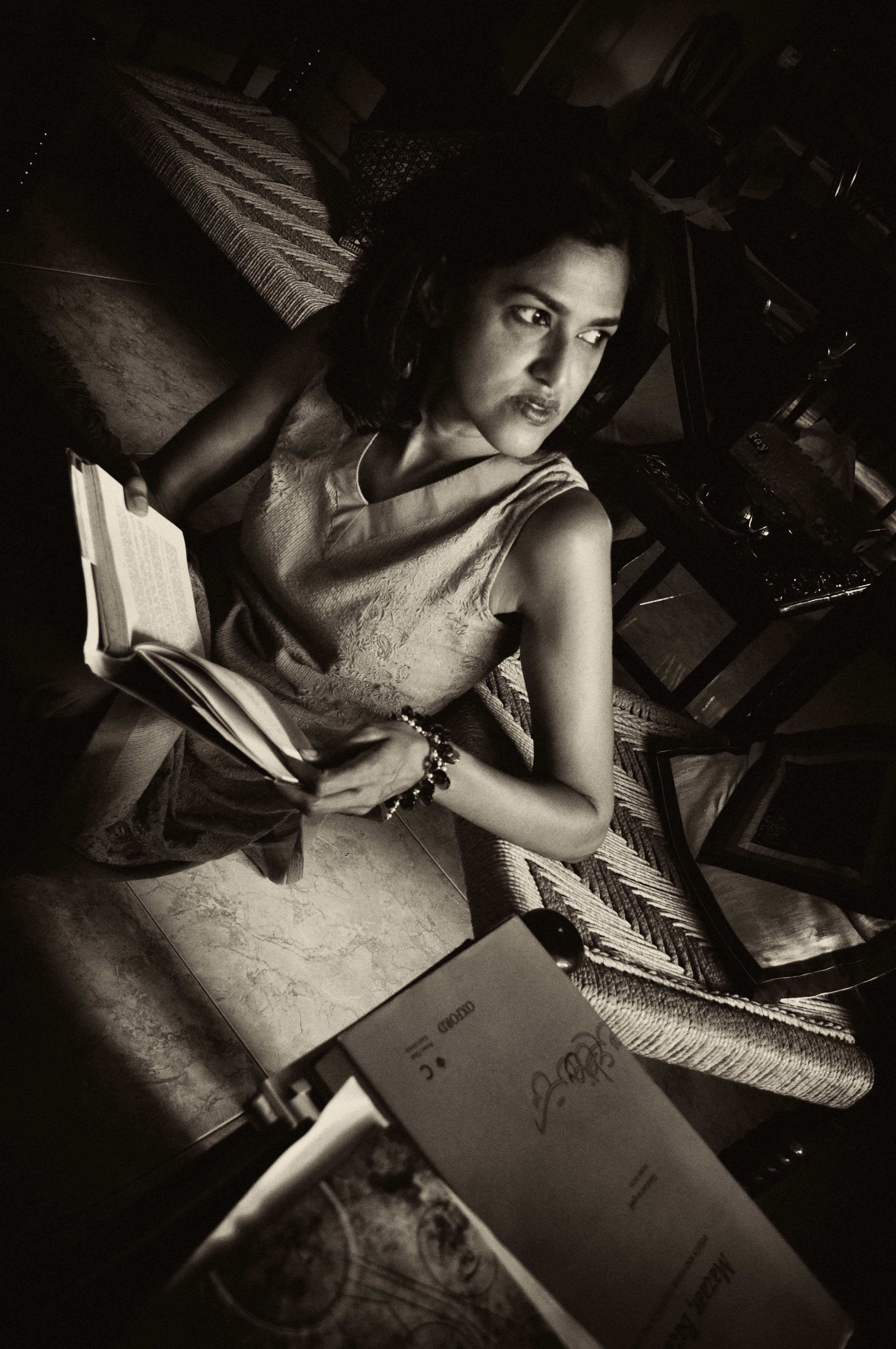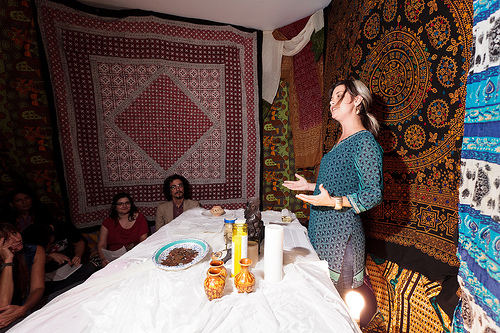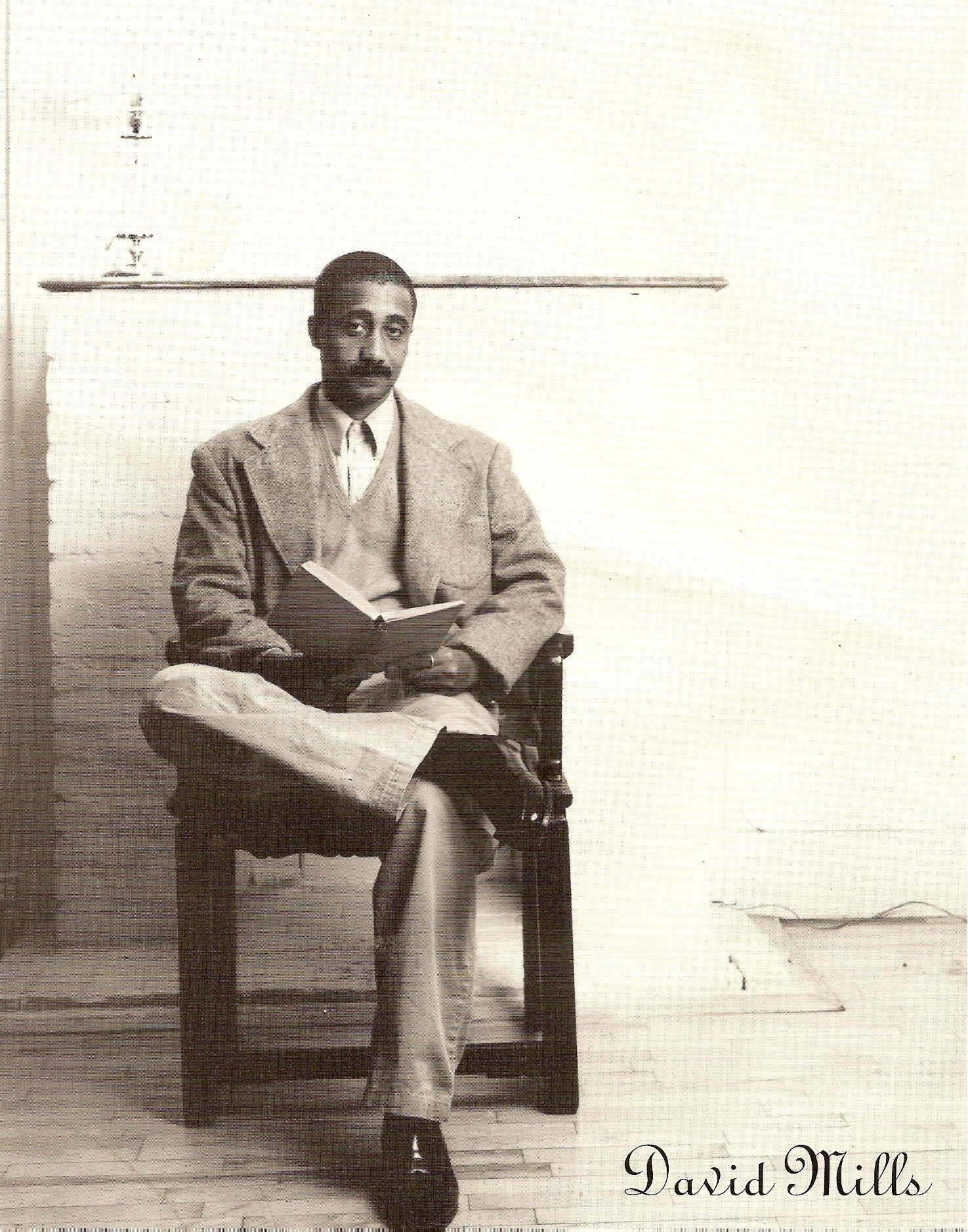Authors Against Bullying
October is National Bullying Awareness Month, and Open Road Media put together this video of authors Dean Koontz, Peter Lerangis, Bette Greene, Patty MacLachlan, and Logan Levkoff speaking out on the subject.
Jump to navigation Skip to content
October is National Bullying Awareness Month, and Open Road Media put together this video of authors Dean Koontz, Peter Lerangis, Bette Greene, Patty MacLachlan, and Logan Levkoff speaking out on the subject.
The author of The House on Mango Street read earlier this year at the Guadelupe Cultural Arts Center in San Antonio as part of the Librotraficante Caravan.
In the profile “Emma Straub’s Life in Letters” (Poets & Writers Magazine, September/October 2012), author Emma Straub reveals that the genesis for her novel Laura Lamont’s Life in Pictures was an obituary she read about a woman named Jennifer Jones. After reading the obituary, she wrote a fictionalized account of her life. Follow Straub’s example: Read the obituary section of a newspaper, and write a story with a main character loosely based on what you find.
The Rona Jaffe Foundation has announced the winners of its 2012 Writers’ Awards. The annual awards honor six emerging women writers of poetry, fiction, and creative nonfiction. Each winner receives $30,000.
This year’s recipients include poet Lauren Goodwin Slaughter of Birmingham, Alabama; fiction writers Julia Elliott of Cayce, South Carolina, Christina Nichol of Sebastopol, California, and Rachel Swearingen of Kalamazoo, Michigan; and creative nonfiction writers Kim Tingley of Cambridge, Massachusetts, and Inara Verzemnieks of Iowa City.
The late novelist Rona Jaffe established the awards program in 1995, in order to support women writers in the early stages of their careers. Since then, the program has given more than one million dollars in prize money to over a hundred women.
“This is an extraordinary and ambitious group of women writers,” Beth McCabe, the director of the awards program, said in a press release of the 2012 winners. “They are original, inventive, provocative, and daring. They are taking risks, challenging conventions, and tackling their material with a sense of humor, brio, and confidence beyond their years.”
Recipients of the awards are nominated by writers, editors, teachers, critics, and other literary professionals. A selection committee is appointed by the foundation annually, and all nominators and committee members remain anonymous.
“All of our winners are working to complete their first books and for many this will be the first opportunity in their careers to free themselves temporarily from financial worries to focus on their writing,” McCabe added. “This is what Rona had always hoped to achieve with her program and it’s wonderful to see the impact it has had on these writers’ lives.”
Rona Jaffe was the author of sixteen books. Her most recent novel is The Room-Mating Season (Dutton, 2003). Her first novel, The Best of Everything, originally published by Simon and Schuster in 1958, was reissued by Penguin in 2005, the year that Jaffe passed away.
Past winners of the awards have included writers such as Eula Biss, Rivka Galchen, ZZ Packer, Sharifa Rhodes-Pitts, and Tracy K. Smith. The 2012 winners will give a reading at New York University in New York City on September 21. For more information about the winners, and about the Rona Jaffe Writers’ Awards, visit the website.
October writer-in-residence Sehba Sarwar blogs about P&W-supported Voices Breaking Boundaries (VBB), an alternative arts organization. A writer and multidisciplinary artist, Sarwar uses her poetry, prose, and video/art installations to explore displacement and women’s issues on a domestic and global level. Her first novel, Black Wings, was published in 2004, and she is currently working on a second manuscript tentatively entitled "Island."
 This month, as Voices Breaking Boundaries (VBB) launches our thirteenth season, I’m reminiscing about Fall 1999, when my friend Marcela Descalzi asked if I wanted to do anything before the start of the next millennium. At that time, Houston offered few options for new writers, performance artists, and grassroots activists.
This month, as Voices Breaking Boundaries (VBB) launches our thirteenth season, I’m reminiscing about Fall 1999, when my friend Marcela Descalzi asked if I wanted to do anything before the start of the next millennium. At that time, Houston offered few options for new writers, performance artists, and grassroots activists.
“I want to create a space for artists to share work about issues that matter to us,” I said. “I also want to perform a poem about political events unfolding in Pakistan, my home.”
We formed a collective, inviting three other women writers and artists—Christine Choi, Donna Perkins, and Jacsun Shah—to join us. Dedicating hours in coffee shops, we finally agreed on Voices Breaking Boundaries as our group’s name. Our logo was the globe viewed from the southern Hemisphere. We wanted to offer a new lens through which to experience the world and to create space for artists and audience members from different backgrounds to gather, share art, and learn from one another.
Without thinking of the outcome, I submitted a grant application to the Houston Arts Alliance and was awarded $4,500. We decided to use the funds to print postcards and pay honoraria to artists. Each of us was teaching at that time, so we didn’t pay ourselves even though we performed at the shows. During our first year, we created monthly lineups in a local bookstore, featuring performance poets, academics, high school students, capoeira dancers, and drummers. In February 2001, after our collaboration with the Museum of Fine Arts Houston and Himal South Asia (Nepal) to offer a South Asian film festival, we knew we had to respond to our audience and incorporate VBB into a nonprofit arts organization.
 Fast forward to Fall 2012. I’m still writing and now draw a salary as VBB’s salaried artistic director. Over the years, VBB has received free performance and exhibition space and has collaborated with many other organizations, including Arté Publico Press, Project Row Houses, DiverseWorks, and Inprint, Inc., and has featured artists such as Arundhati Roy, Bapsi Sidhwa, and Patti Smith—all while continuing to tackle some of the most controversial issues of our times. We have carved a niche for our unique productions, living room art, through which we convert residential homes into art spaces and use the experience to create connections between Karachi, my home city, and Houston, where I’ve lived for some time. The productions, elaborate one night flares, meld spoken word, music, performance and videos with installations.
Fast forward to Fall 2012. I’m still writing and now draw a salary as VBB’s salaried artistic director. Over the years, VBB has received free performance and exhibition space and has collaborated with many other organizations, including Arté Publico Press, Project Row Houses, DiverseWorks, and Inprint, Inc., and has featured artists such as Arundhati Roy, Bapsi Sidhwa, and Patti Smith—all while continuing to tackle some of the most controversial issues of our times. We have carved a niche for our unique productions, living room art, through which we convert residential homes into art spaces and use the experience to create connections between Karachi, my home city, and Houston, where I’ve lived for some time. The productions, elaborate one night flares, meld spoken word, music, performance and videos with installations.
And around us, more communities of color and artist initiatives have sprung up. Any given weekend, one can cull from an array of choices to experience art. The city is “minority-majority,” serving as a prediction of demographic shifts across the United States. There’s still much work to be done and sometimes I feel challenged by how often we circle back to the same issues: immigrant rights, women’s reproductive rights, education awareness, racial stereotyping, and the United States' role in global conflicts. But at the same time, I’m grateful for the support VBB continues to receive from arts organizations like Poets & Writers. Looking back at 1999, I couldn’t have predicted where our collective would land. I do know, however, that in the wide expanse of Houston, the United States, and the world, there’s room for many more artist initiatives—and that our story speaks to the urgent need for more alternative voices to converge.
Photos: (Top) Sehba Sarwar. Credit: Emaan Reza. (Bottom) Fall 2011 living room art production Third Worlds: Third Ward/Karachi. Credit: Eric Hester.
Support for Readings/Workshops events in Houston is provided by an endowment established with generous contributions from the Poets & Writers Board of Directors and others. Additional support comes from the Friends of Poets & Writers.
In this clip, author James Salter speaks about visiting France for the first time, in 1950, an experience that he wrote about in his third novel, A Sport and a Pastime, originally published by Doubleday in 1967 and recently released as an e-book by Open Road Media.
Write a story composed entirely of letters from one character to another who never replies. The characters could know each other or could be complete strangers. For an example, read Claire Vaye Watkins's story "The Last Thing We Need" in her collection Battleborn (Riverhead Books, 2012).
Back in July we posted an early trailer for Ang Lee's adaptation of Yann Martel's Life of Pi, but an extended international trailer was recently released that is definitely worth a closer look. The movie, in 3D, opens on November 21.
Check out the cinematic book trailer, directed by Jamieson Fry, for the new novel by T. C. Boyle. San Miguel, published this month by Viking, follows two families, one in the 1880s and one in the 1930s, and their pursuit of self-reliance and freedom on a desolate island off the coast of California.
David Mills has taught several P&W–supported workshops at the Cook County Juvenile Detention Center in Chicago. He is author of the poetry collection The Dream Detective (Straw Gate Books) and has poems in the anthology Jubilation! (Peepal Tree Press) and magazines, including Ploughshares and jubilat. Mills is also the recipient of a New York Foundation for the Arts Fellowship. What is your writing critique philosophy?
What is your writing critique philosophy?
Most of the workshops I conduct are with kids, so I always write on the board “2+2=57,” which means for the hour that I am with them, I don’t want them to worry about spelling or grammar because obsessing over “crossed Ts” could mean losing a moment of genius.
How do you get shy writers to open up?
I try to present a model poem that will spark both conversation and creativity. I remind the students that poetry is not on Mount Parnassus. It’s right t/here, wherever we happen to be geographically and psychically. I make self-deprecating jokes to put them at ease and let them know everything is poetic fair game.
I sweat, so I’ll say: “I sweat while I swim. Use that. ‘How can this guy sweat while he swims?’”
I have abstract expressionist penmanship, so I’ll say: “I write like a blind man with five broken fingers. How’s that possible for a poet?”
I don’t want them to write about my idiosyncrasies, but I hope that by framing them as kooky koans the kids will access their own creative centers.
What has been your most rewarding experience as a writing teacher?
Workshops like the ones P&W sponsored at the Cook County Juvenile Detention come to mind. In one visit, I used Randall Horton’s poignant and ironic poem “Poetry Reading at Mount McGregor (Saratoga, NY).” During his own incarceration, he could never have imagined voluntarily returning to a prison, yet in the poem that’s exactly where he finds himself.
I discuss redemption.
What happens for Randall in his poem is what I hope will happen for these kids. Writing gave him a raison d’etre. Horton writes: “tonight poetry is a sinner’s prayer,” and reflects on how when he was incarcerated he “searched for the… alphabets to help me escape.” He concludes the poem: “How do I say welcome me, I am your brother?”
I got misty-eyed as I read those lines. I think the boys felt what the poem was meant to evoke: union, communion.
There were gangbangers in the class from opposing gangs—African-American and Chicano-American. The teachers had warned that certain guys had to sit on opposite sides of the room. As we discussed the poem, guys started talking across “colors,” opening up. Teachers who weren’t part of the workshop stepped in and stayed.
I asked the guys to write about returning to a place—physically or psychically--that might be filled with pain, fear, anger, or an unresolved question. I asked them to describe it physically, but to then address the wound or fear to a person who had something to do with whatever unresolved feeling was back there.
One Chicano student described a town center in Mexico where an incident had occurred that caused his family to flee to the U.S. What happened to his family is less important than what happened to his peers as a result of his avowal. His poem gave his classmates both insight into and greater empathy for him.
What do you consider to be the benefits of writing workshops for special groups (i.e. teens, elders, the disabled, veterans, prisoners)?
I have only worked with male populations where posturing and bravura run deep. But given an opportunity to see that their vulnerability will not be used against them, these boys will open up. I think some of these young men feel—and sometimes rightfully so—like the words in Patricia Smith’s poem, “CRIPtic Comment”:
If we are not shooting
at someone
then no one
can see us.
There is the sense that these boys feel both seen and heard during our time together. In one of the P&W–supported Cook County Juvenile Detention workshops, I used Langston Hughes’s “The Negro Speaks of Rivers”:
I've known rivers:
I've known rivers ancient as the world and older than the
flow of human blood in human veins.
Hughes’s piece has an epic reach—bodies of water of mythic, cultural, and historic proportion. I talked about Hughes’s “knowing.” I got the boys to write about things they knew intimately, using Hughes’ structure to organize their “knowing.” One participant wrote about the various sneakers he has “rocked”:
I’ve known Nikes, shell-top Adidas...
You get the idea.
Another student had lived in Illinois and Indiana, so he wrote about “knowing” distinct parts of these two states, both in terms of geography but also the “temperature” of different communities.
What's the strangest question you’ve received from a student?
I am pretty zany so no question strikes me as strange. I do get a lot of “Why do you sweat so much?”
Photo: David Mills. Credit: Luig Cazzaniga.
Support for Readings/Workshops events in Chicago is provided by an endowment established with generous contributions from the Poets & Writers Board of Directors and others. Additional support comes from the Friends of Poets & Writers.